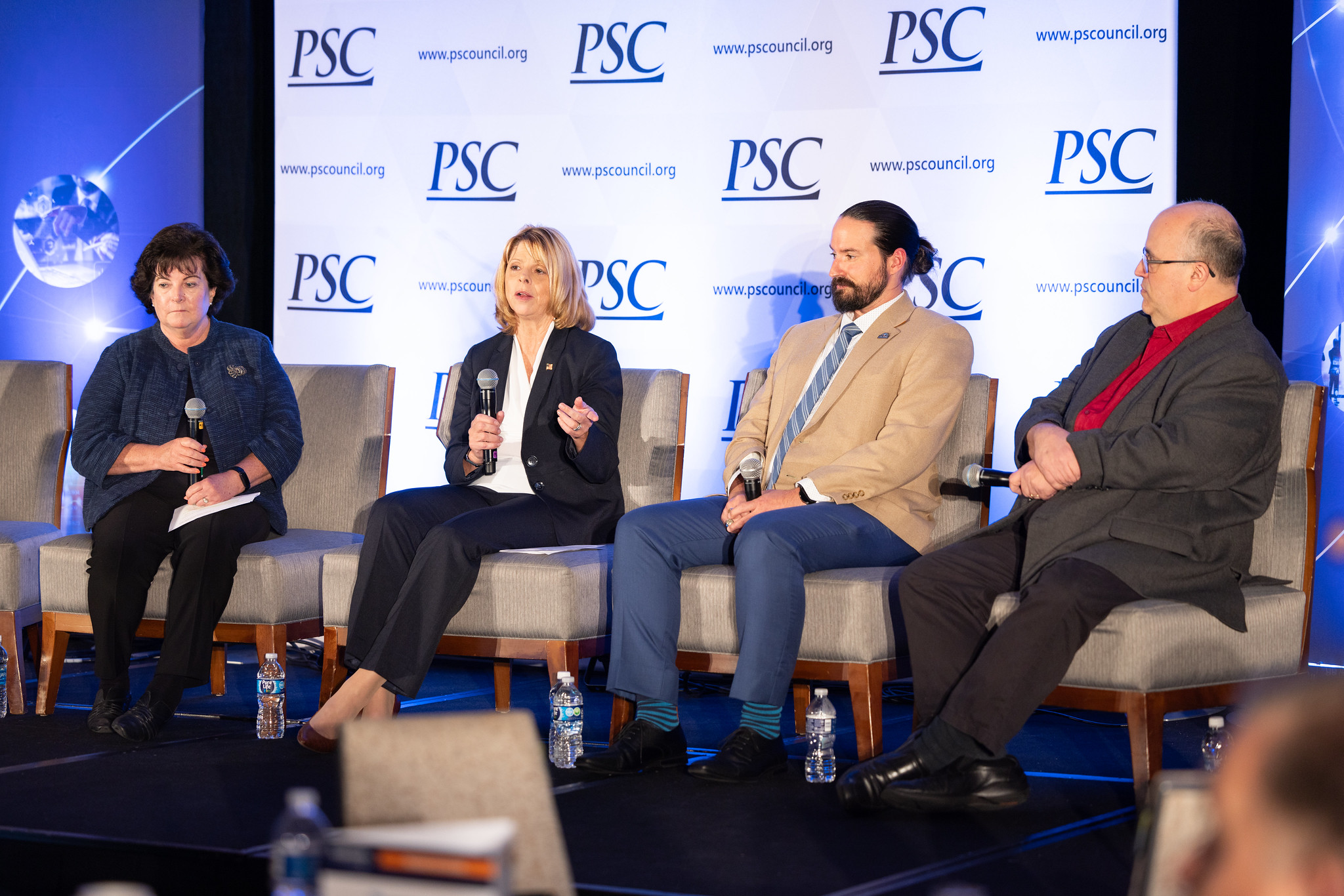Panel: Scorecards and Self-Assessments: Evaluation Trends in the Federal Marketplace
Nancy Andrews, Program Executive Officer for Combat and Mission Support and Senior Services Manager for Services, U.S. Air Force
Jim Ghiloni, IDIQ Labs Group Manager, GSA/FEDSIM
Adam Spacht, Director, Compliance and Internal Control Service Strategic Acquisition Center, VA
Kitty Klaus, Vice President of Contracts, Easy Dynamics (moderator)
The audience was introduced to a group of experts with diverse backgrounds in federal procurement. Nancy Andrews, the Program Executive Officer for Combat and Mission Support and Senior Services Manager for Services in the U.S. Air Force, brought extensive experience in overseeing major defense programs and acquisitions. Jim Ghiloni, the IDIQ Labs Group Manager at GSA/FEDSIM, provided valuable expertise in managing government-wide acquisition contracts and evaluating contractor performance. Adam Spacht, the Director of Compliance and Internal Control Service Strategic Acquisition Center at the VA, offered insights from the perspective of one of the largest healthcare agencies in the government. Serving as the moderator, Kitty Klaus, the Vice President of Contracts at Easy Dynamics, skillfully guided the discussion and facilitated constructive dialogue between the panelists and the audience.
The panelists discussed agency officials' thought process regarding the use of self-assessments and scorecards in the proposal evaluation process. They acknowledged that some companies perceive the evaluation process as "a numbers game," where achieving a near-perfect score becomes crucial for consideration. The session delved into why agencies use these assessment methods in some cases but not in others, highlighting the factors that influence their decision-making.
Furthermore, the panel examined the advantages and drawbacks of using scorecards and self-assessments in federal procurement. They explored how these evaluation methods can impact the fairness and competitiveness of the bidding process, as well as their effectiveness in identifying the most suitable contractors for contract awards. The audience gained insights into what may be gained or lost by employing scorecards, and how the industry should best approach this type of evaluation method to improve their chances of success.
In conclusion, the panel discussion provided valuable perspectives on the increasing use of scorecards and self-assessments in the federal marketplace. The insights shared by the panelists shed light on agency officials' considerations, the rationale behind these evaluation methods, and their implications for companies bidding on government contracts. As industry professionals navigate the complex landscape of federal procurement, understanding the nuances of scorecards and self-assessments becomes crucial in optimizing their proposals and increasing their chances of securing valuable government contracts.
